KN Kindergarten
KN Kindergarten in Minamikyushu City blends local landscapes with innovative design, emphasizing real-life experiences, physical activity, and admiring nature through architecture by HIBINOSEKKEI and partners.
Based on the concept of “a facility that enchants the original landscape and provides opportunities for authentic experiences,” a kindergarten has been newly constructed in Minamikyushu City, Kagoshima Prefecture.
The landscape of mountains and fields is a common sight in many places in Japan and is an ordinary scenery that locals don’t pay much attention to. Therefore, it is believed that people often fail to notice the beauty of these landscapes, such as the changing colors of nature that occur throughout the day and the seasons. Moreover, the recent diversification of indoor activities such as watching videos and playing games has led to a lack of opportunities for learning and growth that arise from real-life experiences. Additionally, the decline in children’s physical abilities, which is a current trend, has highlighted the issue that children in the countryside are more prone to physical inactivity due to the disadvantages of the modern car-centric society.
Therefore, the aim was to capture the overlooked and ordinary landscapes through architecture and create them into beautiful scenery unique to the location. Simultaneously, we aimed to enhance the play areas facilities and increase opportunities for physical activity, and create a space where children can learn through real experiences through play.
The “large window that captures the original landscape” in the dining room and the “corridor on the veranda that lets in the breeze” connecting the nursery to the outside allow children to experience the beauty of nature and the passage of time throughout the four seasons from anywhere, nurturing their love for their hometown and sensitivity.
The grand staircase used for dropping off and picking up children connects to a climbing net, creating a combination of various play areas such as slides, cave-like spaces, and observation platforms. This design allows children to freely explore and play in all directions. Moreover, although locations with differences in elevation are often considered risky and avoided, children naturally understand what is dangerous through play and engage accordingly.
The net play equipment, which spreads across the walls in all directions like an ant’s nest, provides a sectional view of the children’s activities, allowing parents or guardians to observe them with peace of mind. It also serves as a place where children can feel a sense of growth by reaching heights they couldn’t climb before.
To provide opportunities for experiencing the charm of the local area known for its Buddhist altars while playing, playground using interior materials related to altars, such as lacquer, gold leaf, and mirrors, were planned.
By purposely deliberately avoiding fancy play equipment in the garden, it blends in with the surrounding rice fields and mountains. It is also a place where children can run around and find ways to play by themselves.
The landscapes and experiences that children see and encounter during their early years greatly influence their personality development and physical growth. Among these, feeling the beauty of the local natural surroundings not only nurtures love for their hometown and sensitivity but also becomes a catalyst for children to develop an interest in the outside world. Additionally, by being in an environment that stimulates various activities, it not only creates opportunities for physical movement but also encourages children to devise their own play style and learn through real-life experiences.
Design: HIBINOSEKKEI + Youji no Shiro + KIDS DESIGN LABO
Photography: Ryuji Inoue

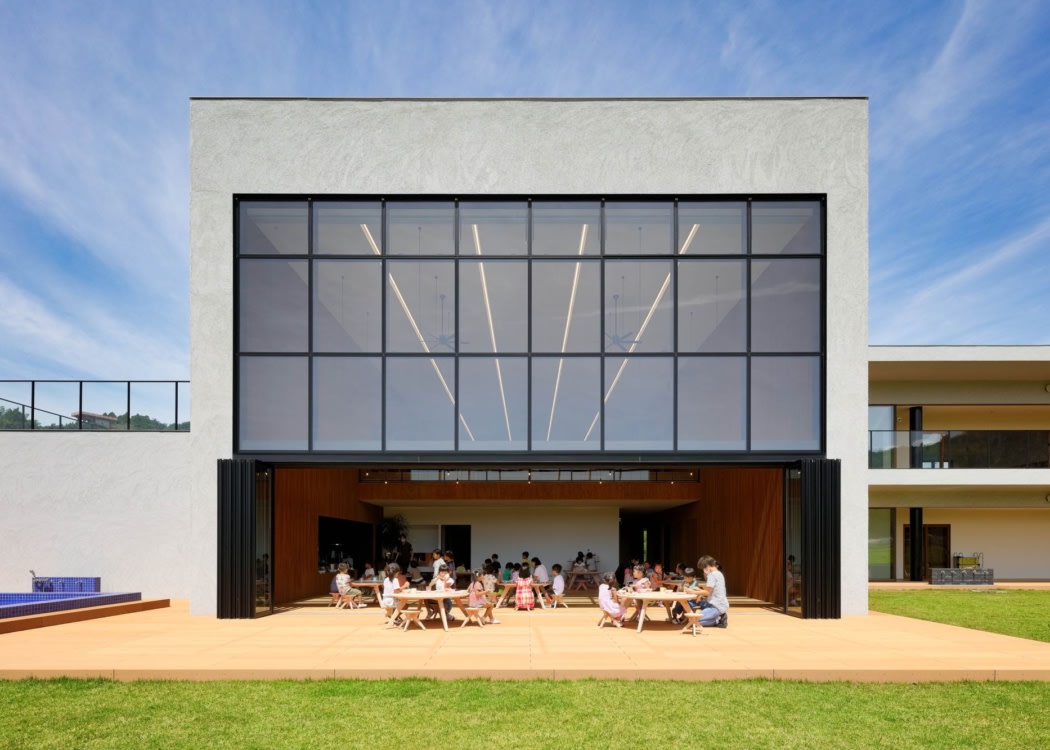
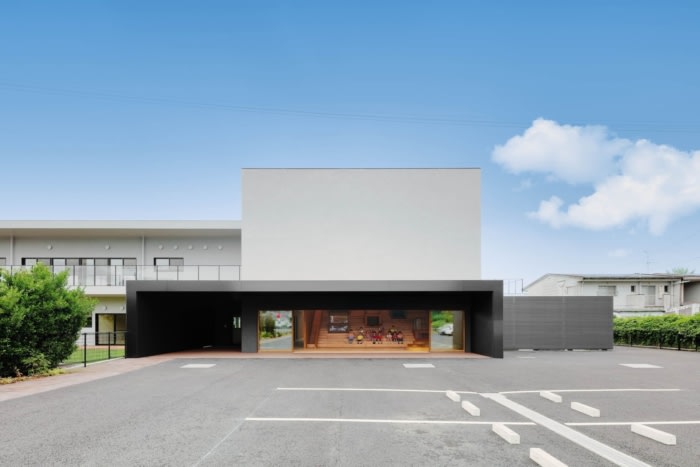
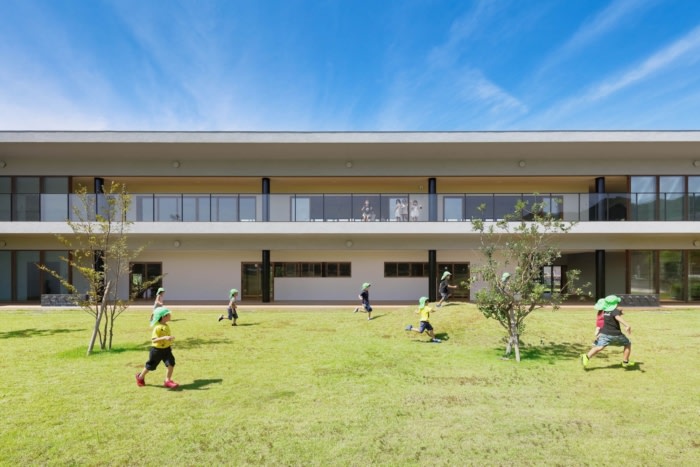
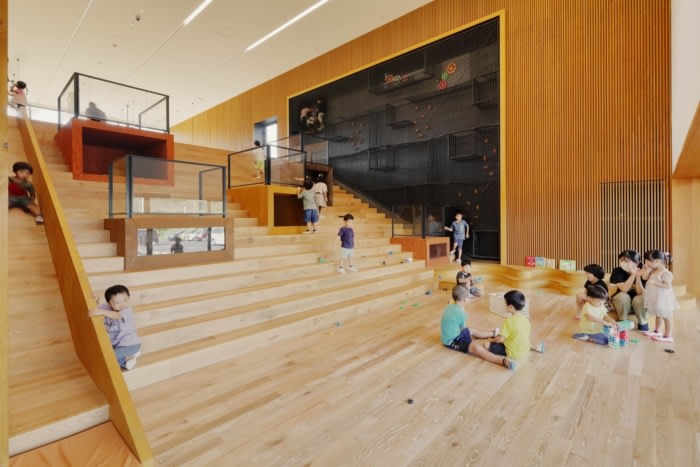
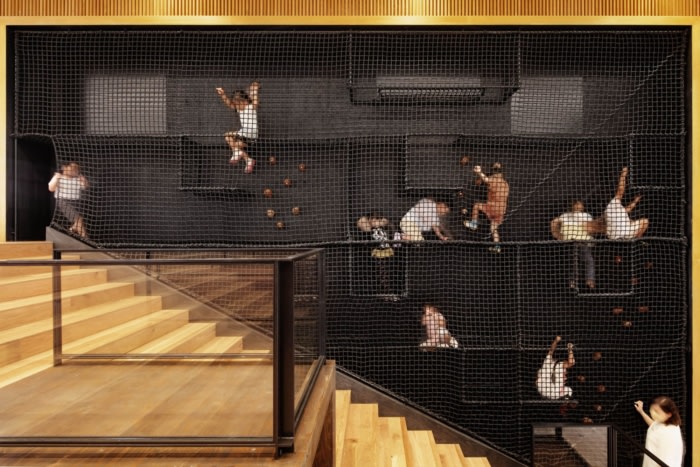
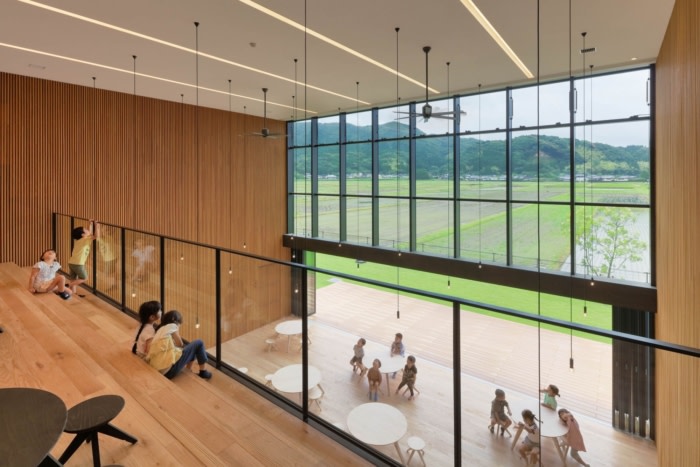
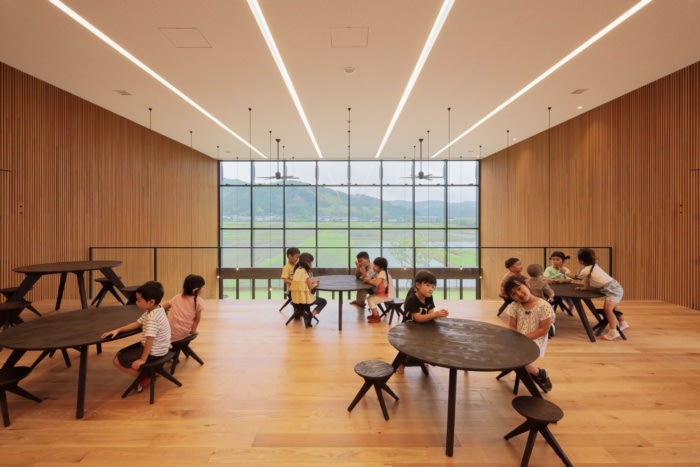
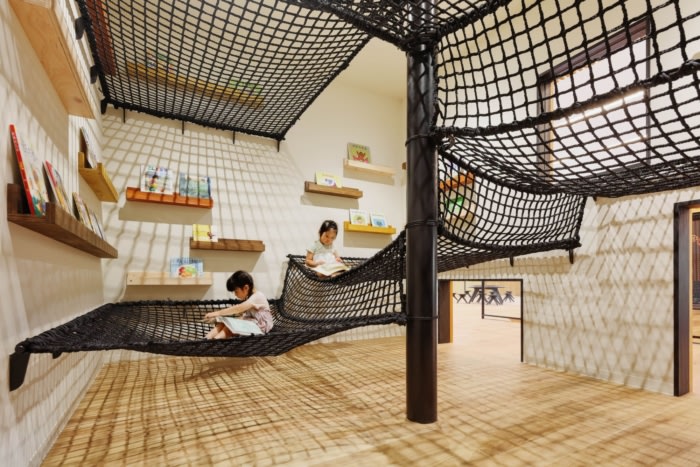
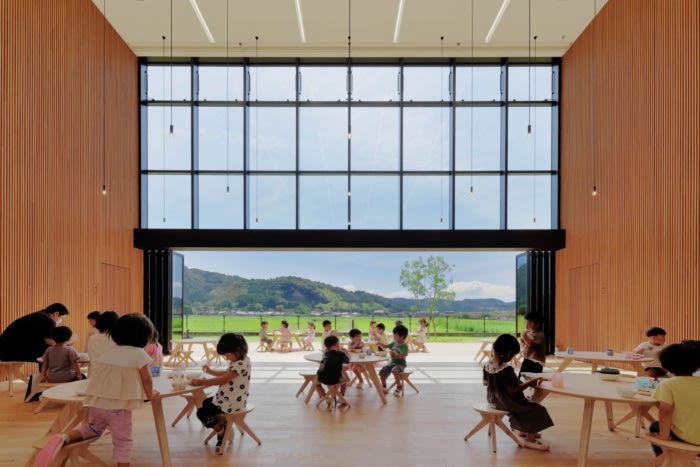
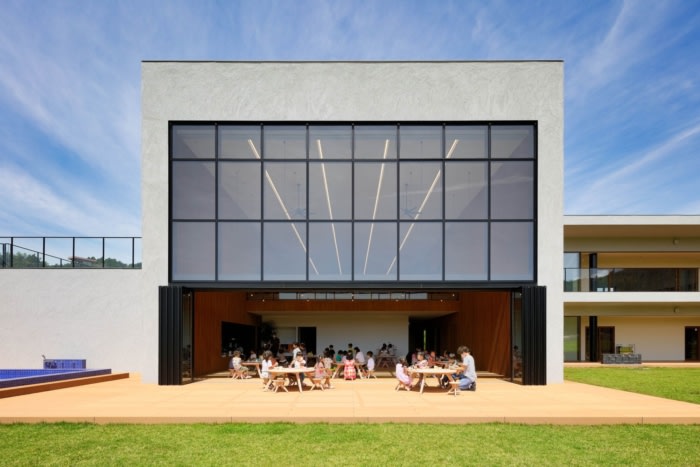
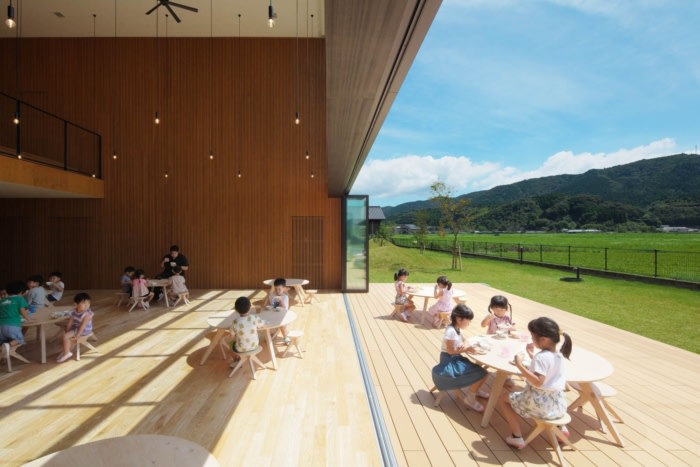
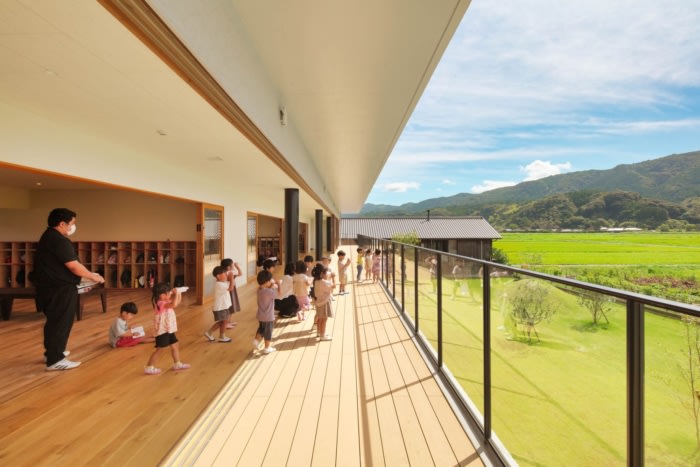
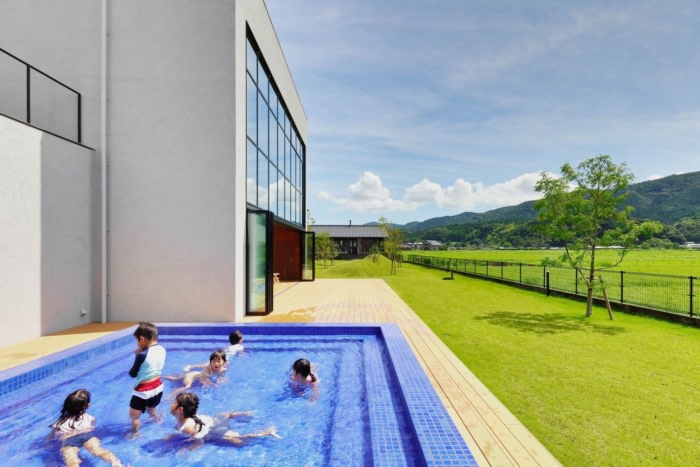


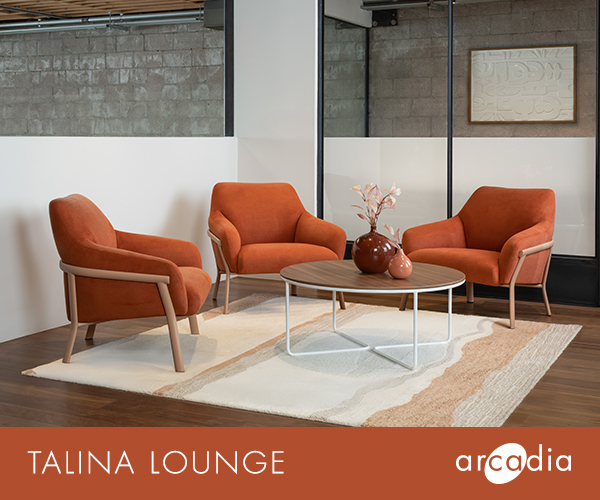
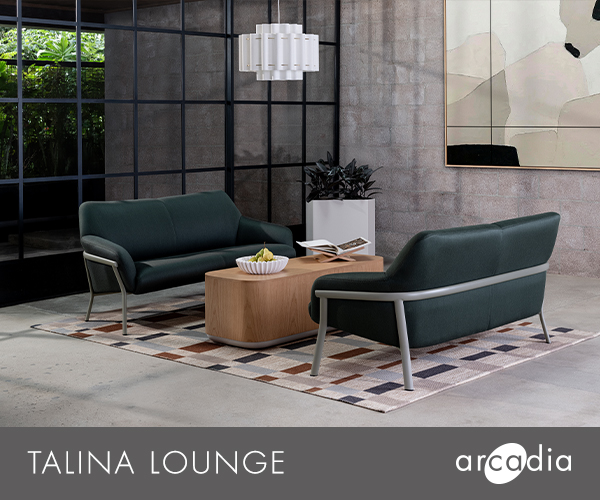
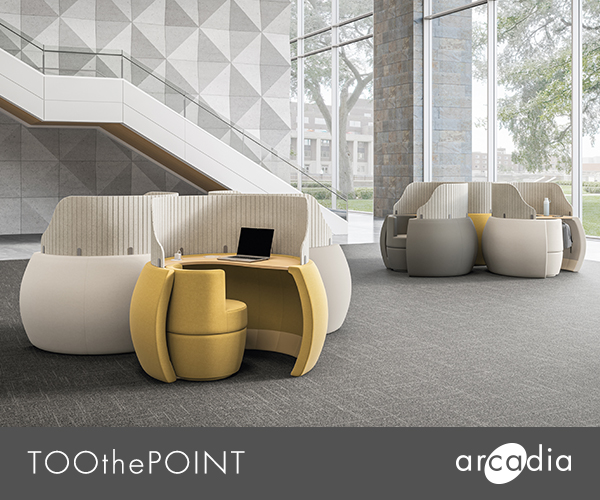



Now editing content for LinkedIn.